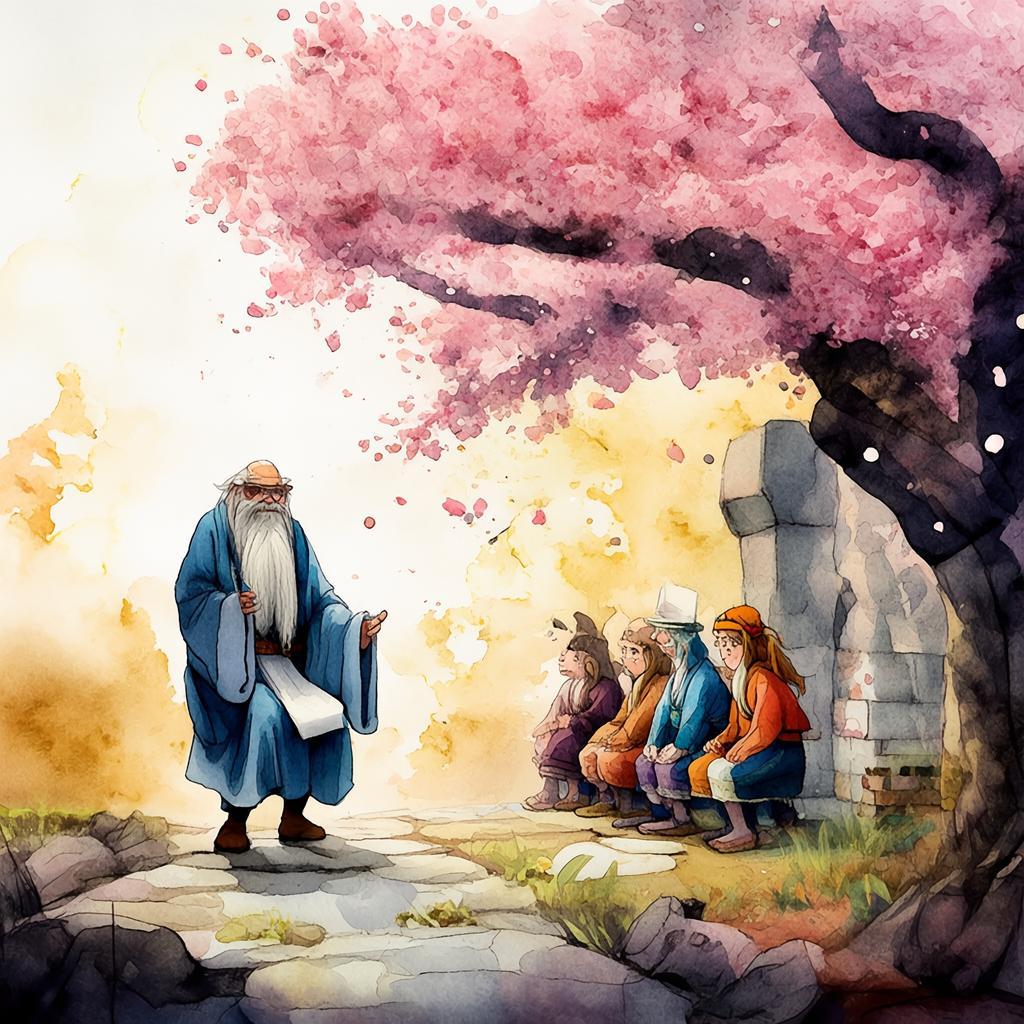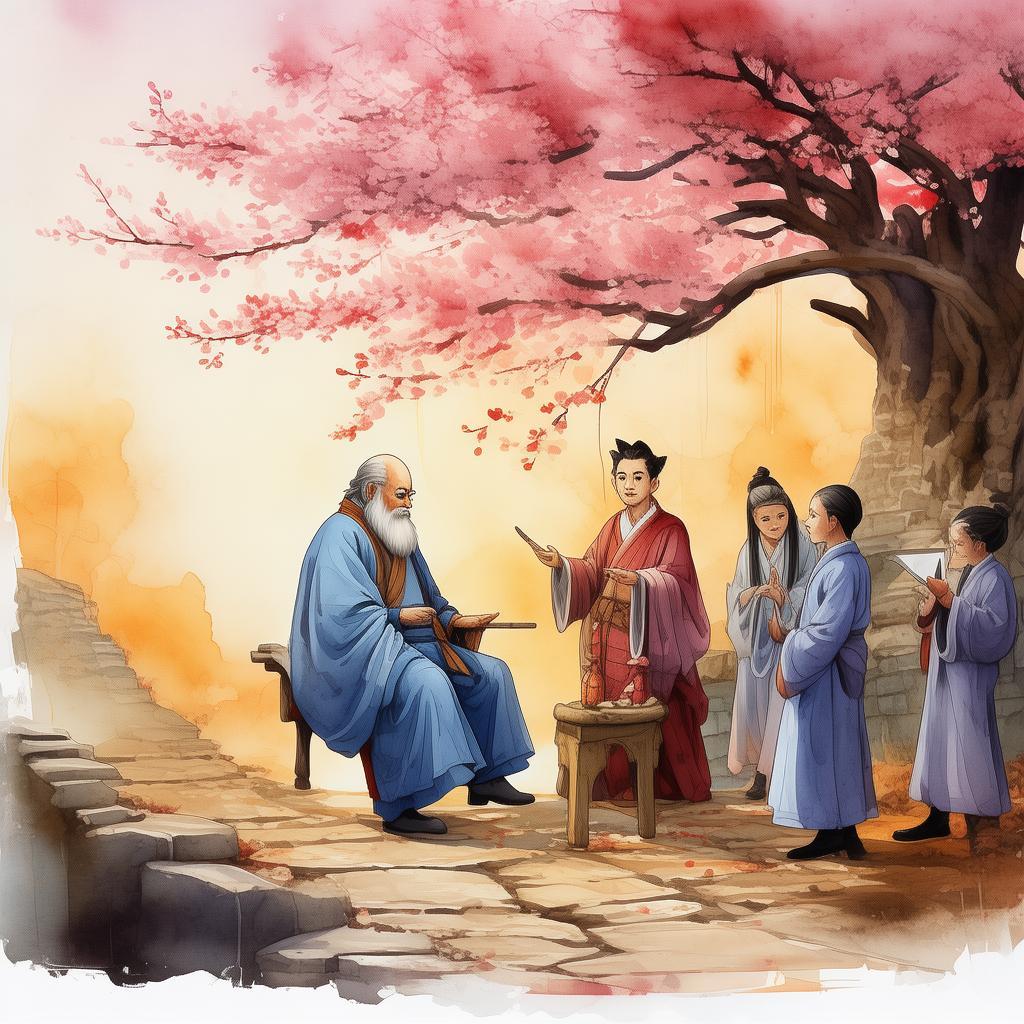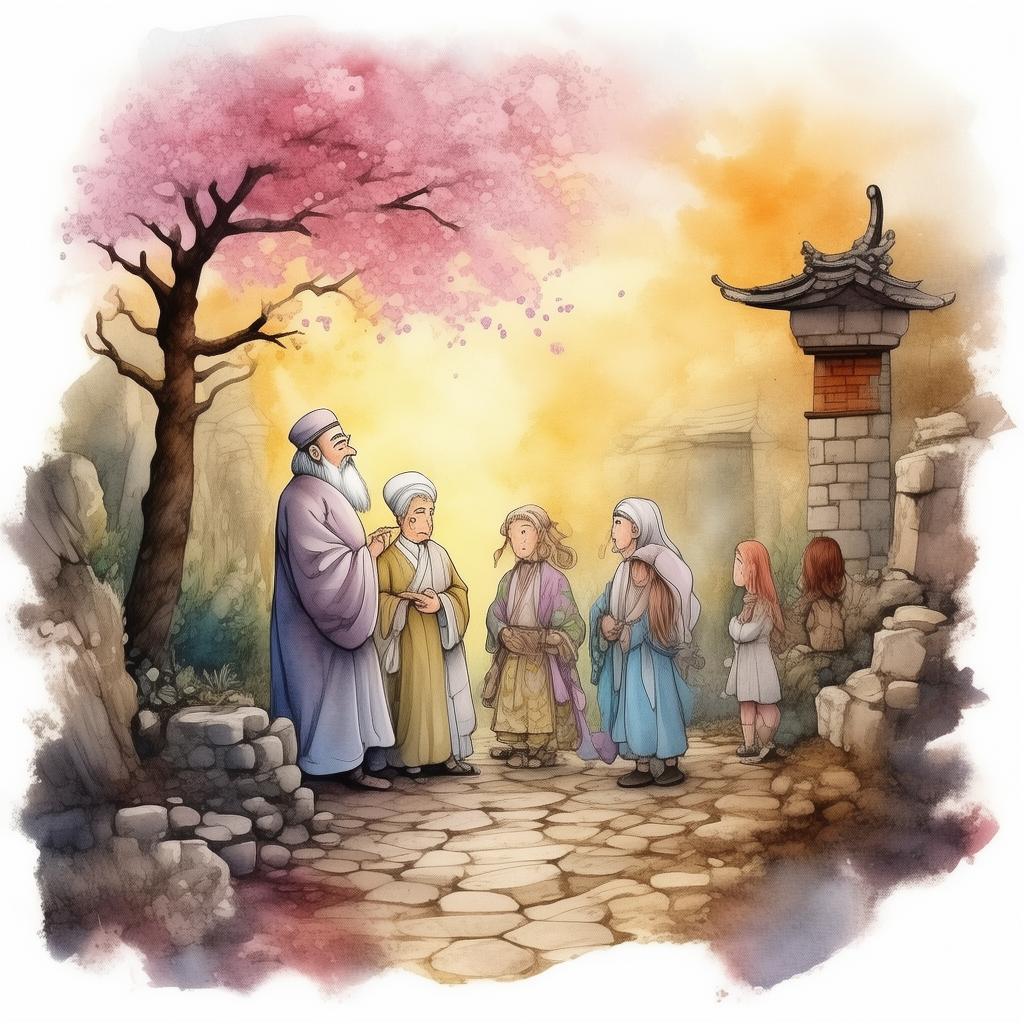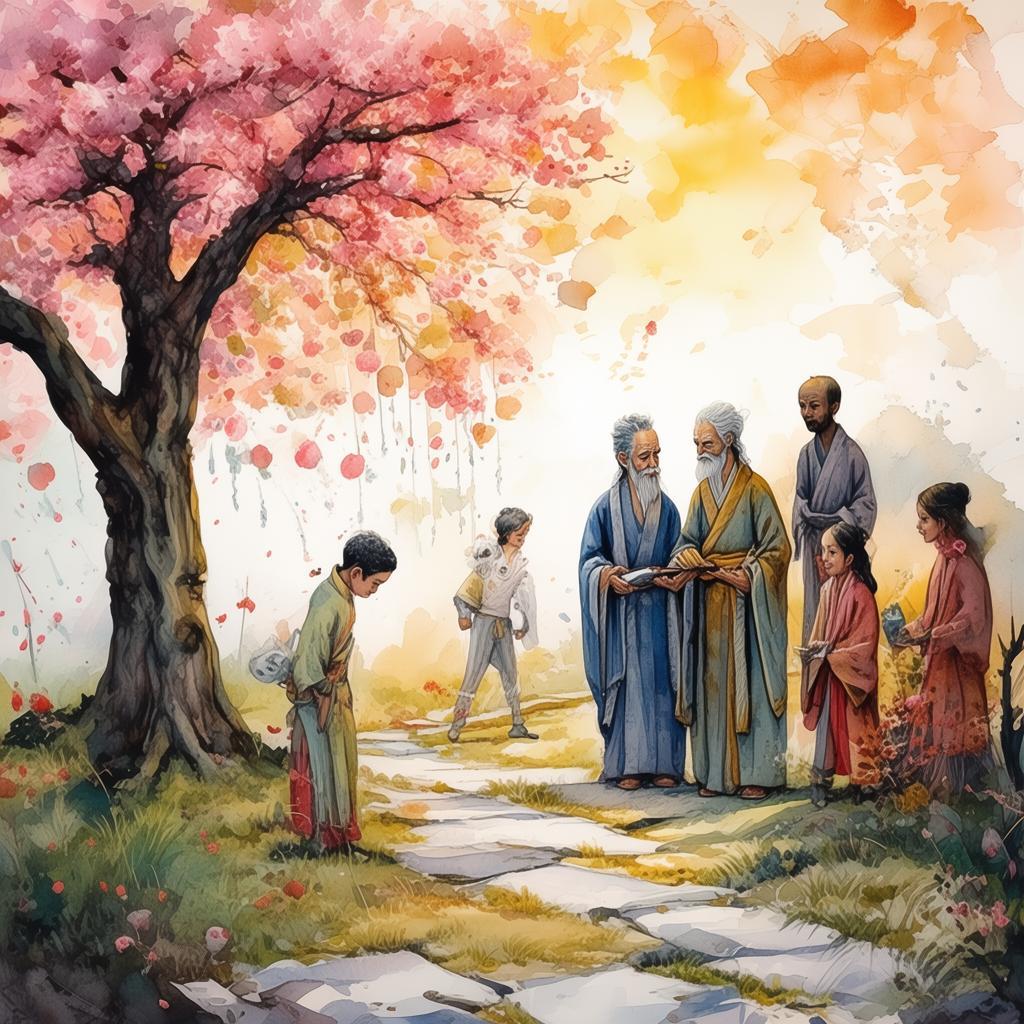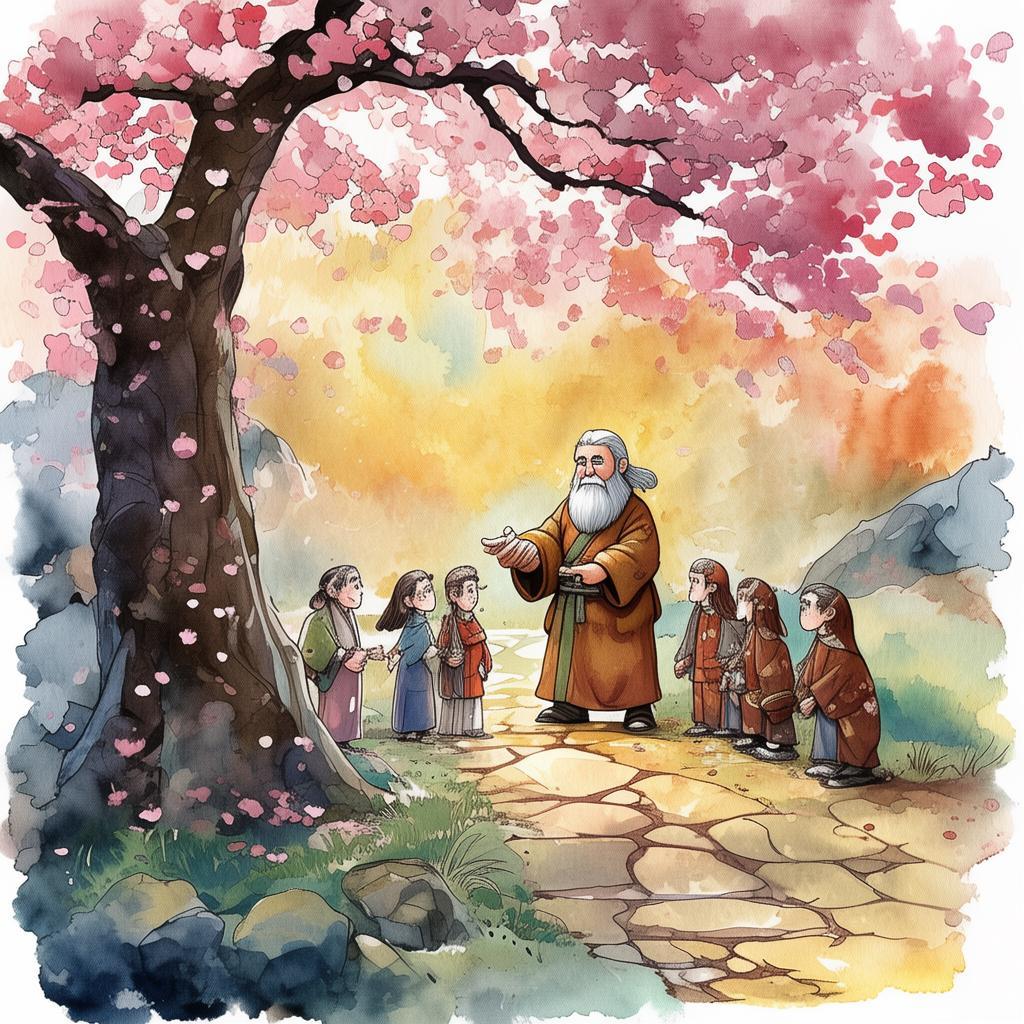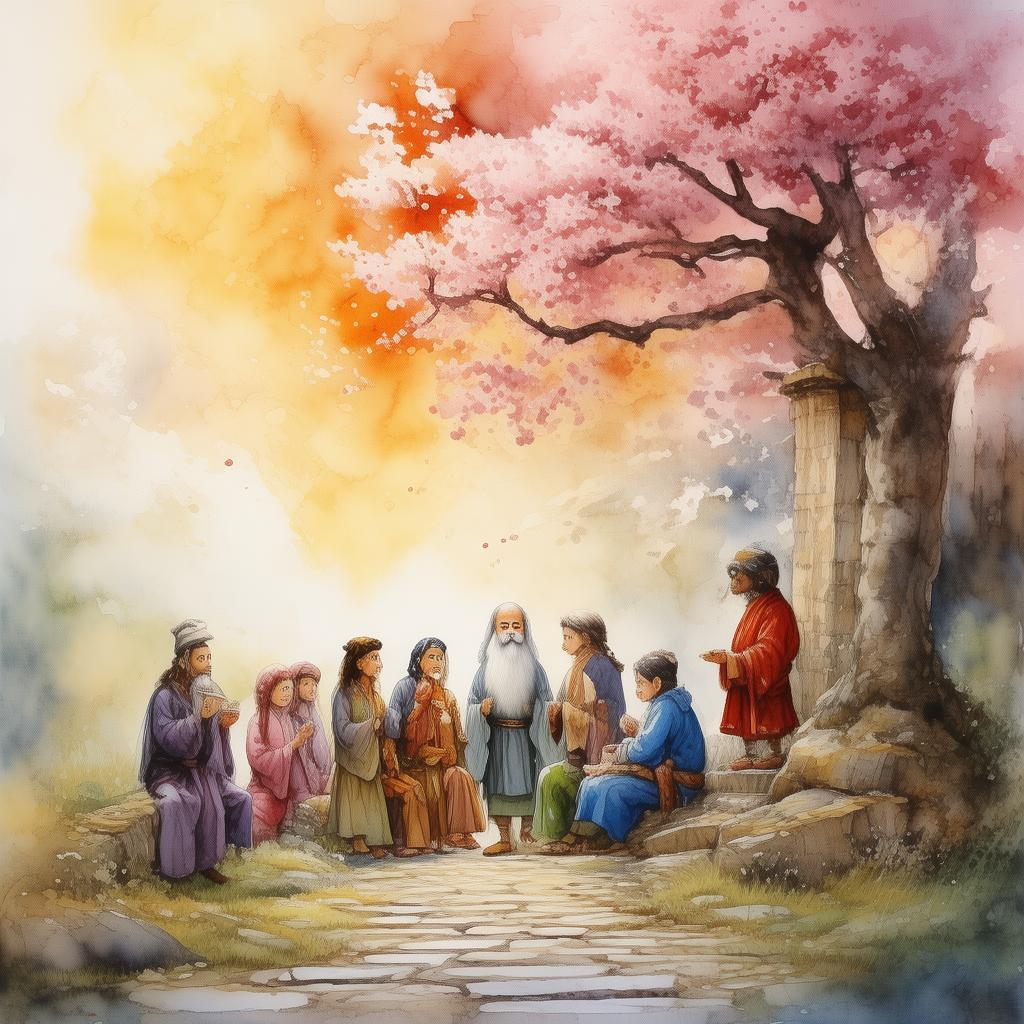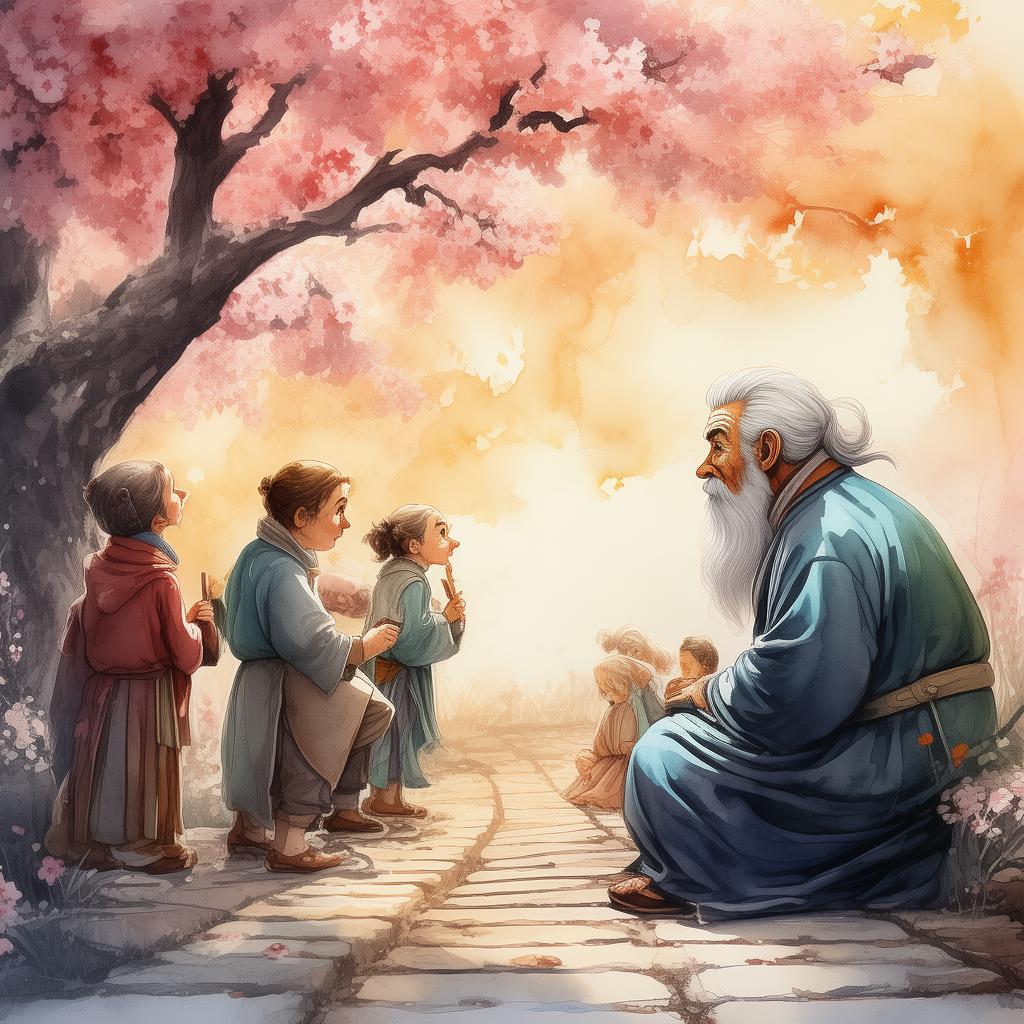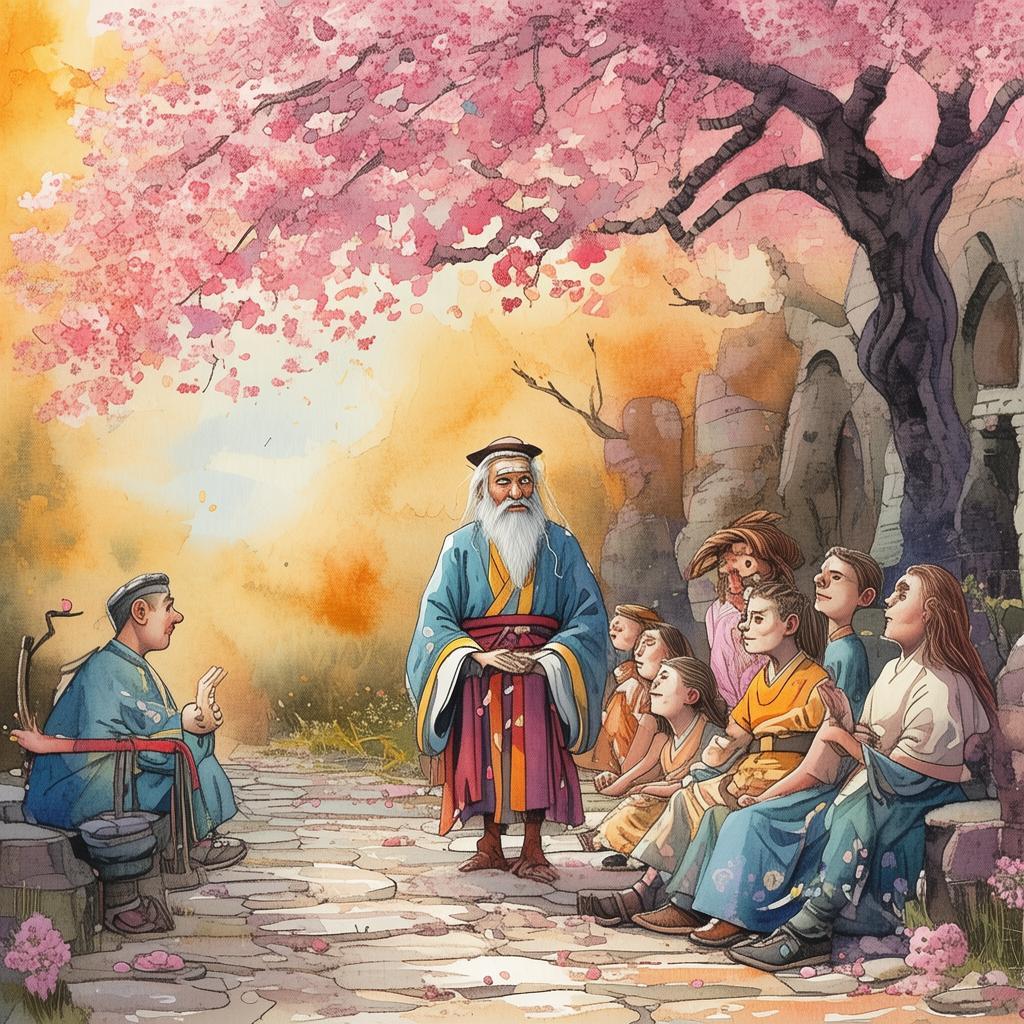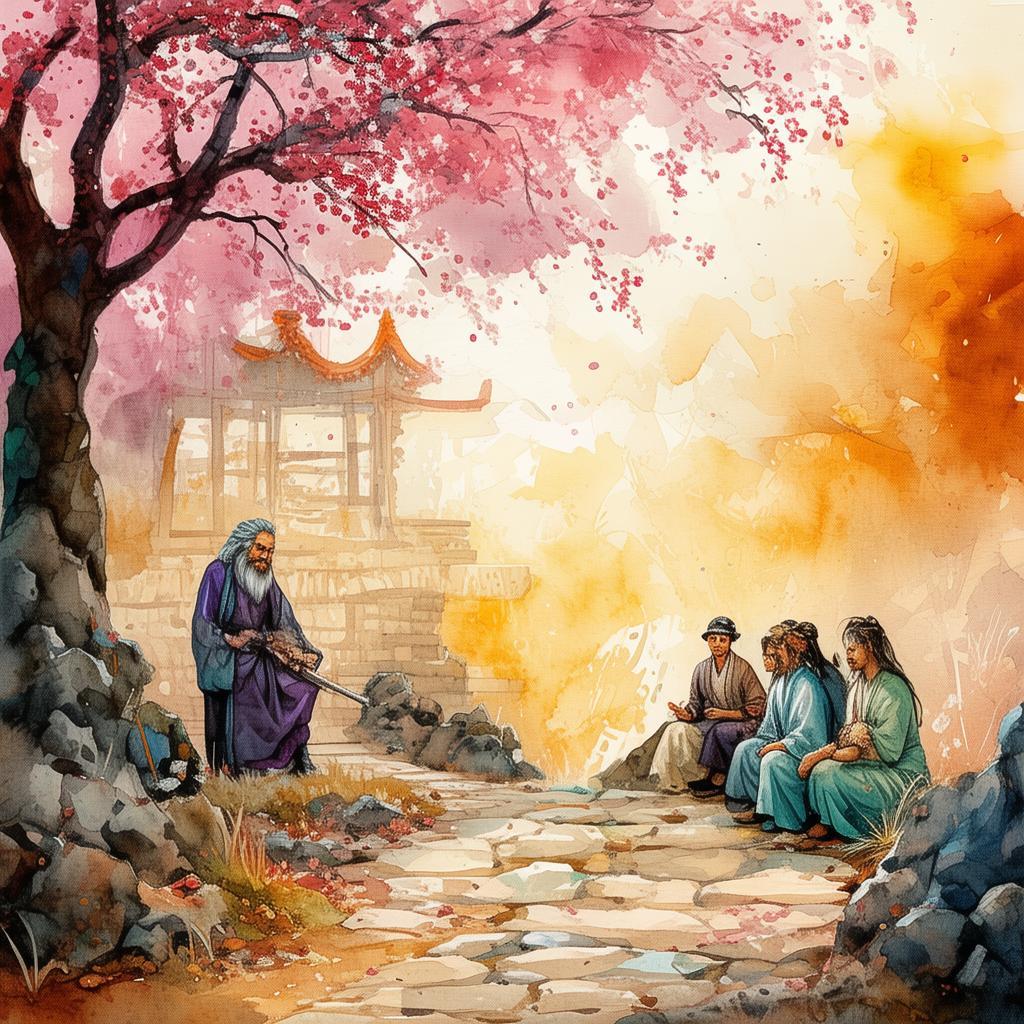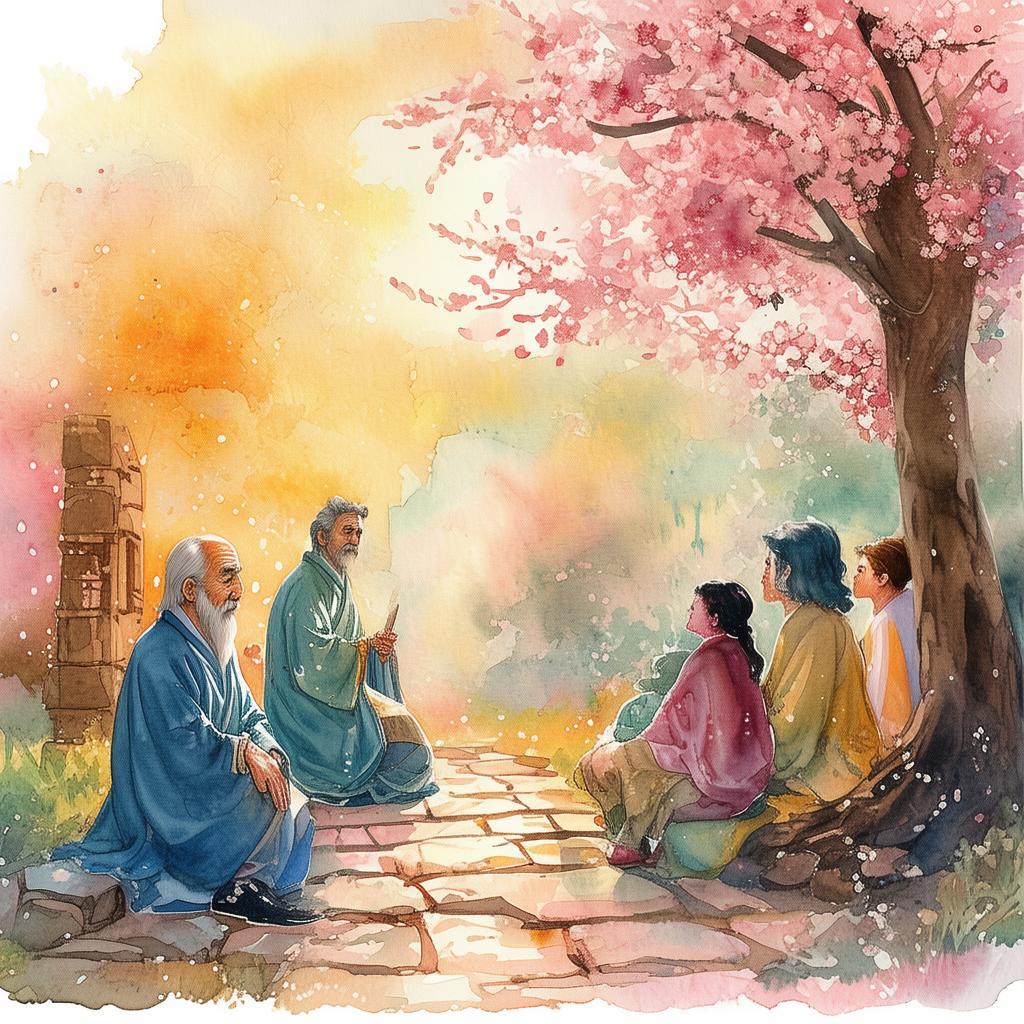The Iron Fox's Labyrinth: A Fujian Idiom Quest
In the ancient province of Fujian, nestled between the towering mountains and the vast ocean, there lived a young scholar named Li. He was known far and wide for his intelligence and dedication to the pursuit of knowledge. One day, Li heard tales of a labyrinth hidden deep within the mountains, said to be the resting place of ancient wisdom and the source of a powerful Fujian idiom.
The idiom in question was "The Iron Fox's Labyrinth," a riddle that had been passed down through generations, its meaning shrouded in mystery. Li was determined to uncover the truth behind this enigmatic phrase. He packed his belongings, set out on a journey, and ventured into the heart of the mountains.
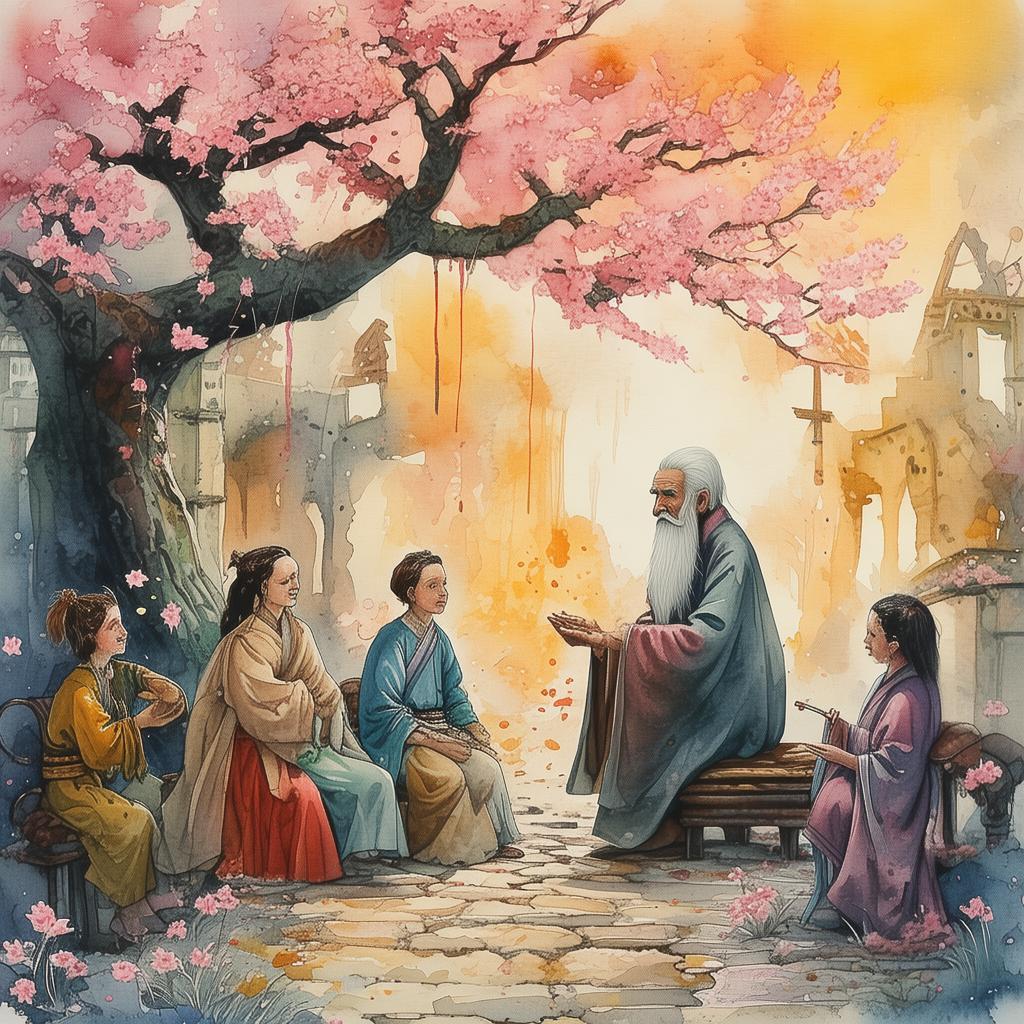
The labyrinth was a marvel of ancient engineering, its walls made of stone and its entrance hidden beneath a thick canopy of trees. As Li approached, he felt a strange energy emanating from the ground, as if the labyrinth itself was alive and watching him.
He stepped inside and found himself in a vast, dimly lit chamber. The walls were adorned with intricate carvings, each depicting a different scene from the life of a wise old fox. Li realized that to solve the riddles and escape the labyrinth, he would need to understand the lessons these carvings conveyed.
The first riddle was simple yet profound: "The fox has no tail, yet it is called a fox. What is it called?" Li pondered this for a moment before realizing that the answer was "the fox's name." The riddle was a metaphor for the essence of something, the core identity, and Li felt a spark of inspiration.
The next riddle was more challenging: "The fox has no eyes, yet it can see. What is it?" This one took Li longer to solve, but eventually, he understood that the answer was "the moon." The moon, without eyes, could still illuminate the night, much like wisdom could guide one through the darkest times.
As Li moved deeper into the labyrinth, the riddles grew more complex and the paths more treacherous. He encountered cunning foxes that appeared to be alive, but were actually cleverly crafted stone statues. These foxes posed riddles of their own, testing Li's wit and knowledge.
One fox asked, "What is the fastest creature in the world that has no wings?" Li knew the answer was "thought," for thoughts could race through the mind with incredible speed. Another fox asked, "What is the most powerful creature in the world that has no teeth?" Li replied, "The wind," for the wind could shape the world without the need for physical force.
Each riddle brought Li closer to understanding the meaning of "The Iron Fox's Labyrinth." He realized that the labyrinth was not just a physical maze but a metaphor for the mind itself, a journey through the complexities of thought and wisdom.
Finally, Li reached the heart of the labyrinth, where a grand, ancient statue of a fox stood. The fox's eyes glowed with an inner light, and its voice resonated through the chamber. "You have passed the test, young scholar," the fox said. "The meaning of 'The Iron Fox's Labyrinth' is the journey of self-discovery, the quest for wisdom."
Li bowed in respect and gratitude. He had not only solved the riddles but had also gained a deeper understanding of himself and the world around him. As he stepped out of the labyrinth, he felt a sense of peace and fulfillment.
The story of Li's journey spread throughout Fujian, and the idiom "The Iron Fox's Labyrinth" became a symbol of wisdom and the eternal quest for knowledge. Li returned to his village, not as the same young scholar, but as a man who had unlocked the secrets of the mind and the spirit.
From that day forward, Li used his newfound wisdom to help others, sharing the lessons he had learned with everyone he met. The Iron Fox's Labyrinth became a legend, a reminder that the true path to enlightenment is a journey within oneself, a quest for wisdom that never ends.
✨ Original Statement ✨
All articles published on this website (including but not limited to text, images, videos, and other content) are original or authorized for reposting and are protected by relevant laws. Without the explicit written permission of this website, no individual or organization may copy, modify, repost, or use the content for commercial purposes.
If you need to quote or cooperate, please contact this site for authorization. We reserve the right to pursue legal responsibility for any unauthorized use.
Hereby declared.
